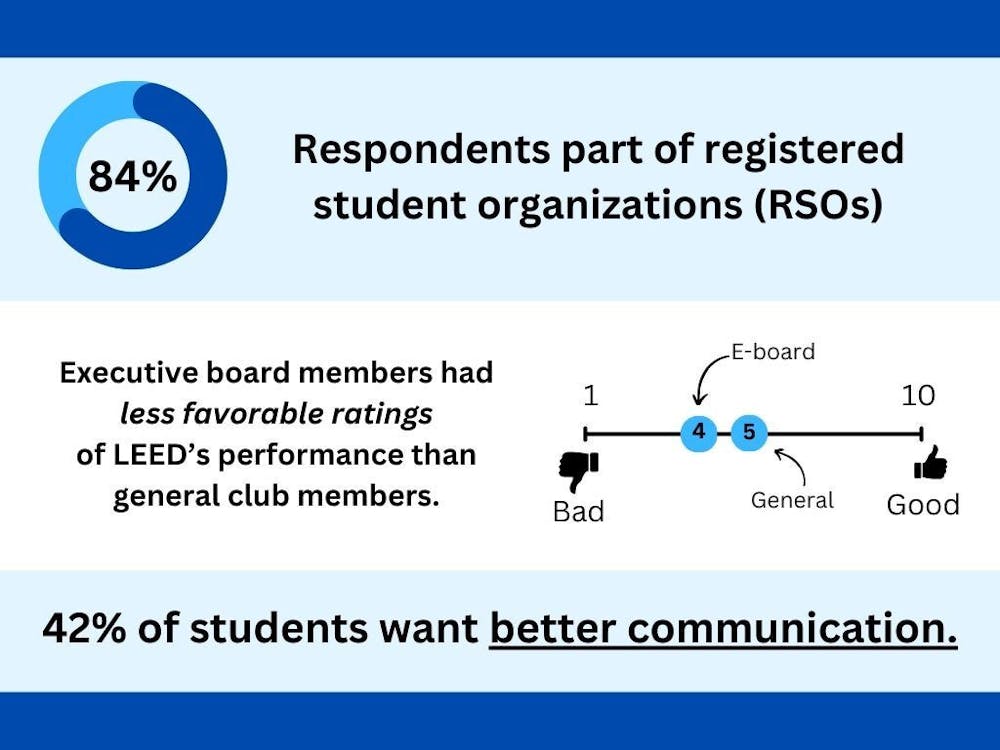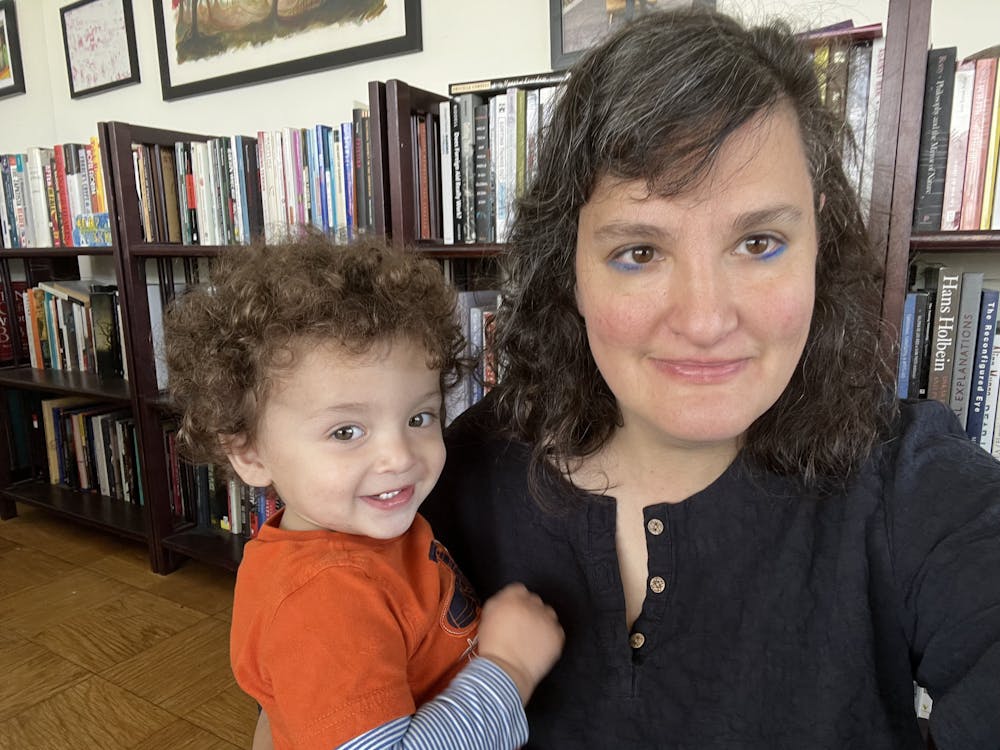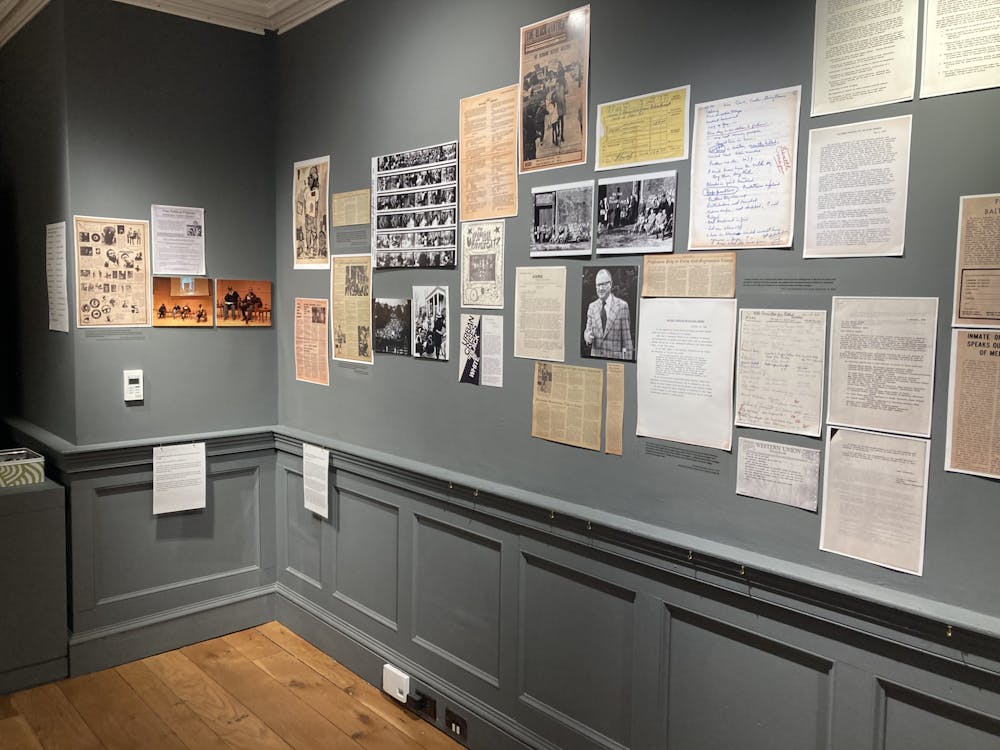As part of an event titled, “The Lunchbox Moment,” five Asian-American students shared their personal experiences with discrimination. The student-led event was held on Tuesday in Charles Commons.
“The Lunchbox moment” refers to a shared experience of being judged for the cultural food Asian-American children bring to school.
Speakers also discussed the history of discrimination against Asian Americans and dealt with feelings of cultural isolation and confronting common misconceptions about Asian Americans. Speakers also proposed solutions to addressing such prejudices.
Provost Sunil Kumar opened the event by reflecting on living in the U.S. as an immigrant with deep ties to South India.
He talked about assumptions people make based on his race and cultural heritage and reflected on his coworkers’ reactions to the food he brings for lunch.
“They’re trying to forecast, with limited information, what kind of person I am by what’s in my lunchbox,” he said.
Kumar noted that his coworkers have been most puzzled when he brings traditionally American food.
“The surprise is not about the very hot, fragrant South Indian food that I bring,” he said. “It’s always about the ham sandwich, you know?”
Kumar then elaborated on what he can learn about people from their unwarranted “forecasts.”
“I’m... more American than people give me credit for. I’ve been living in the U.S. for 25 years, and yet I’m quite Indian as well,” he said. “When other people make forecasting errors for me, it tells me about their forecasting system. It doesn’t tell me anything about me. And so I’ve always been very comfortable in my identity.”
Kumar encouraged students to be proud of the “cultural foods” they bring with them and to be open-minded in their interactions with other cultures.
“I hope your conversation leads to you sampling more broadly and having the best lunchbox you can possibly have,” he said.
After Kumar’s opening speech, junior Morgan Ome talked about the dangers of excluding Asian-American social issues from discussions concerning contemporary American politics and American history.
Ome cited the internment of Japanese Americans during World War II, the 1982 murder of Chinese-American Vincent Chin and controversial past American policies like the Chinese Exclusion Act and bans on educational integration and interracial marriage.
“Sanitizing and glossing over Asian-American history makes it easier to erase the legacy of shared oppression that Asians have experienced alongside other minorities,” she said.
Junior Kush Mansuria discussed the term “brown town,” which is often used to describe groups of South Asians. According to Mansuria, South Asians frequently use the label.
“It’s kind of a funny term,” Mansuria said. “Using words like ‘brown town’ is creating a divide... specifically if you look at the South Asian versus East Asian idea.”
Lauren Duan, a freshman, talked about racial slurs recently aimed at Olympic athlete Chloe Kim, who won a gold medal for the U.S. in the women’s halfpipe event at the 2018 Pyeongchang Winter Olympics.
Duan noted that Kim was the target of racially charged comments about her appearance.
“Interspersed in these beautiful comments of patriotism, there were some that were like, ‘why can’t this moon-faced Asian go back to where she comes from?’, ‘how can she even see out of those slanty eyes?’ and ‘the only reason her hair’s blonde is because she’s trying to look more American, she’ll never be American,’” Duan said.
Duan said that Kim’s experience with racism resonates with many Asian Americans.
“This was obviously such a horrible example of the perpetual foreigner myth,” she said. “Here’s someone who’s wrapped up in the American flag, literally singing our national anthem for the world to see, and these people can’t recognize her as American. And this is something that we deal with everyday.”
She elaborated that while Asian Americans are criticized in the U.S. for being too Asian, they are also judged for not being Asian enough.
“We talk a lot about how we’re perpetual foreigners in the United States, but we’re also perpetual foreigners in Asia,” Duan said.
Junior Aran Chang discussed how being transgender makes him feel distant from his family and heritage.
“In Korea, a lot of people follow the Confucian idea that we have to conform to society to keep harmony, to keep the peace, to go with the flow,” he said. “A lot of LGBTQ members would rather stay in the closet to keep their families happy.”
Some speakers proposed solutions to resolving issues affecting the Asian American community. Sophomore Olivia Chan emphasized the need for solidarity and “allyship” between the Asian-American community and other communities.
“The Asian-American community as a whole is very neutral in the face of injustice, unless it’s perceived as happening to us,” she said.
Brandon Park, a freshman who attended the event, believes the U.S. is becoming more accepting of Asian Americans. However, Park expressed doubts that Asian Americans would ever be fully assimilated.
“The pessimistic side of me does think that there’s going to be some kind of lingering division just because Americans have experienced things that are very different from what Asian Americans have experienced.”
Sawako Hirata, an exchange student from Japan, shared his thoughts on the event.
“I heard from several Japanese Americans about Japanese internment,” he said. “But it’s really different from hearing from Hopkins students about their own experience, and I appreciated their courage to speak out.”
Disclaimer: Editor-in-Chief Rollin Hu and Managing Editor Kelsey Ko were involved in organizing the event. Morgan Ome is also a News & Features Editor. None of them were involved in the reporting or editing of this article.

















Please note All comments are eligible for publication in The News-Letter.